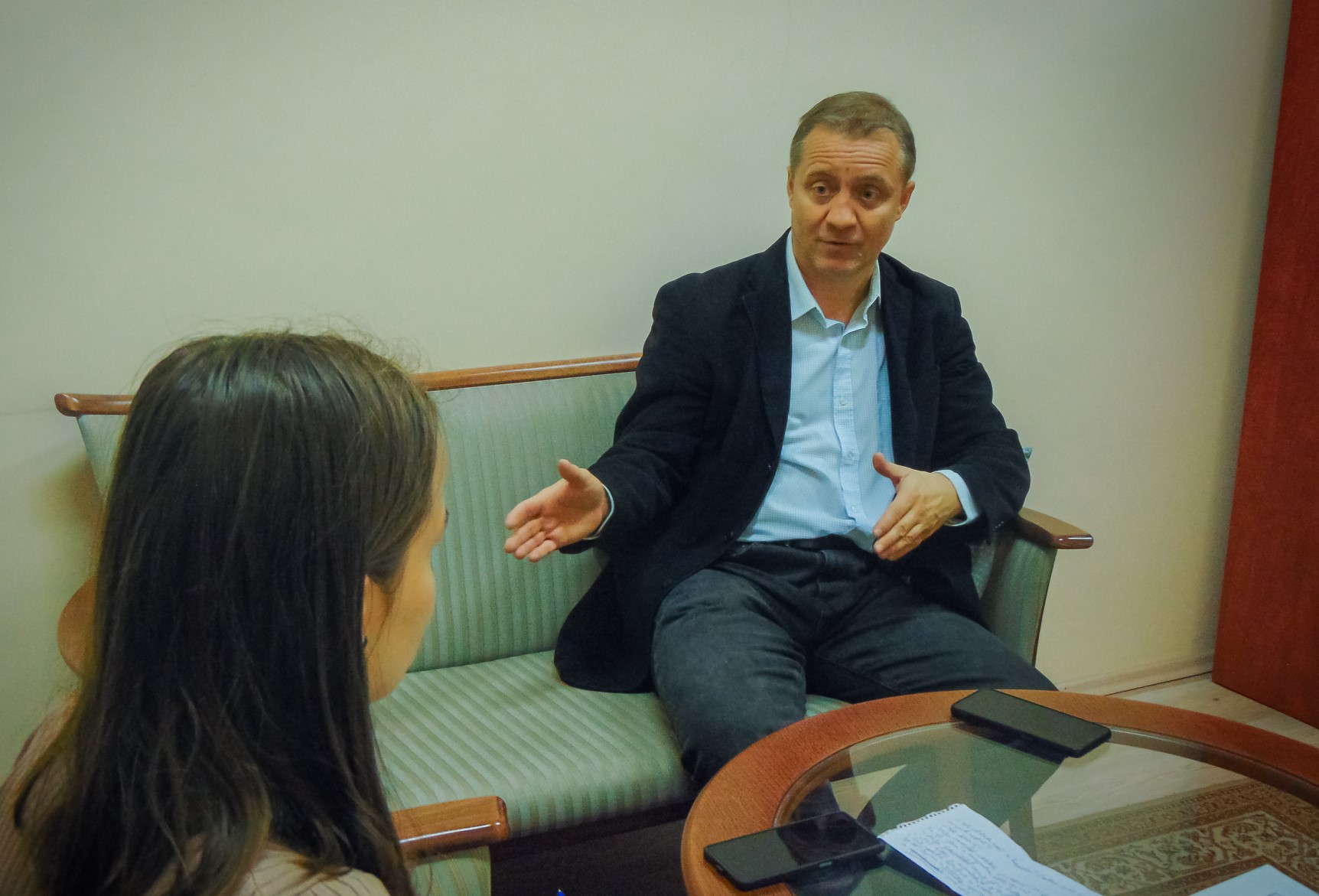
In September 2024, the Faculty of Humanities and Social Sciences at the University of Szeged launched an English-language Psychology BA program at its Institute of Psychology. The six-semester program is open to both Hungarian and international students, who may also participate for a single semester through the Erasmus Scholarship Program.
In response to our question, Prof. Dr. Mihály Racsmány, head of the institute, emphasized that the English-language Psychology BA program is on par with its Hungarian counterpart and prepares students to advance to a master’s program. This is because psychology education across Europe is standardized under the Bologna system. “Adapting the program for English-language instruction is remarkably straightforward, given that psychology education across Europe is largely conducted in English anyway,” he noted. Furthermore, elective courses such as sociology, philosophy, and digital culture, offered by the Faculty of Humanities and Social Sciences, are also taught in English.
This year, Hungarian students make up the majority of those enrolling in the English-language Psychology BA program, with the exception of one Turkish student and a small group of Erasmus exchange students. However, the long-term goal is to predominantly attract international applicants.
“Our ambition is to bring internationally renowned experts to teach at the department, whether for a year or two or an extended period. Obviously, attracting foreign instructors to the university is challenging if instruction is conducted solely in Hungarian,” explained Mihály Racsmány.
The Hungarian-language psychology program itself consistently has more applicants than available places, resulting in the highest admission scores at the university year after year.
“Recognizing that psychology is among the most popular offerings of the university, we created a new international program. We hired new instructors, many of whom are young, energetic, and up-and-coming, which has greatly benefited the entire institute,” noted the head of the Institute of Psychology. He added that all long-standing members of the institute are, of course, proficient in English, as “psychology is a field where this is only natural.”
So far, instructors’ experiences indicate that international students enrich the program by lending their new and diverse perspectives to class discussions. According to the head of the institute, new student dynamics have emerged, positively influencing the learning environment. Based on his observations, international students tend to be more relaxed and more willing to ask questions, as they are less anxious about potentially asking a “wrong” question. “Both our students and instructors benefit from experiencing an international educational setting,” summarized Mihály Racsmány.
Hungarian students can apply for the program through the Felvi.hu system, just as they would for any other Hungarian-language program. International students, on the other hand, can submit their applications for a self-funded program via the SZTE DreamApply platform or apply for a Stipendium Hungaricum scholarship. Additionally, they must present a motivational letter and complete an entrance exam based on selected chapters from the Atkinson and Hilgard psychology textbook. Upon admission, they are assigned a Hungarian mentor and are also required to attend Hungarian language classes for two semesters.
Applications are open to students from the following countries:
Albania, Angola, Argentina, Armenia, Azerbaijan, Bahrain, Bangladesh, Belize, Bolivia, Bosnia and Herzegovina, Brazil, Brunei, Burundi, Cambodia, Cape Verde, Chad, Chile, China, Colombia, Democratic Republic of Congo, Costa Rica, Cuba, Dominican Republic, Ecuador, Egypt, El Salvador, Ethiopia, Gambia, Georgia, Ghana, Honduras, India, Indonesia, Iran, Iraq, Israel, Japan, Jordan, Kazakhstan, Kenya, Kosovo, Kuwait, Kyrgyzstan, Laos, Lebanon, Liberia, Libya, Madagascar, Malaysia, Maldives, Mali, Marshall Islands, Mexico, Moldova, Mongolia, Montenegro, Morocco, Mozambique, Namibia, Nigeria, Oman, Pakistan, Palestine, Panama, Peru, Philippines, Russia, Rwanda, Serbia, Seychelles, Sierra Leone, Singapore, South Korea, Saint Lucia, Sudan, Syria, São Tomé and Príncipe, Taiwan, Tajikistan, Thailand, Tunisia, Turkmenistan, Turkey, Ukraine, United Arab Emirates, Uruguay, Uzbekistan, Venezuela, Vietnam, Yemen.
For more information, visit the website of the Institute of Psychology at the University of Szeged.
International students can apply for the program via the self-financed application platform or by applying for it via the Stipendium Hungaricum Scholarship.
Original Hungarian text by Helga Balog
Photo by Nikolett Görög
In the feature photo: Prof. Dr. Mihály Racsmány, Head of the Institute of Psychology at the Faculty of Humanities and Social Sciences, University of Szeged

